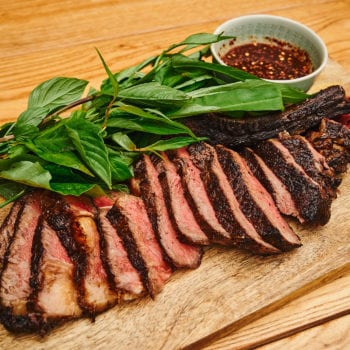Meat Industry Ireland “unable to support” Food Vision Beef and Sheep Report

€1.5bn hit to rural economy if proposed removal schemes proceed, says MII
20 December 2022
Following engagement with the Department of Agriculture, Food, and the Marine on the Food Vision Beef and Sheep Report, Ibec trade association Meat Industry Ireland (MII) said it continues to hold concerns on measures contained in the recently published report. As such, MII and its members have said they are unable to support the report in its current form.
Representing the interests of the primary meat processing sector, Ibec says it has worked with the stakeholder group formed by the Minister to consider measures to address the challenges facing agriculture in reducing greenhouse gas emissions.
Despite commitments given by government that there was no risk to a stable herd, MII says the inclusion of measures aimed at incentivising a reduction in the suckler cow herd will compromise the economic contribution and viability of the beef sector.
The association estimates that the level of reduction proposed, together with the naturally occurring long run decline, will significantly undermine the industry and wipe almost €1.5bn from the Irish economy.
The Food and Agricultural Policy Research Institute (FAPRI) forecasts a natural fall of some 3% per annum to 2030 in the suckler herd, which would result in achieving in the same period, the scale of removals modelled in the Food Vision Beef report.
As things stand, MII says measures contained in the report would lead to a permanent loss of 20% of beef output, equivalent to a beef export loss of €700m annually, and the closure of processing facilities, resulting in direct and indirect job losses of 6,500. An equivalent of some 14,500 farmers would exit the sector, according to MII leading to reduced economic activity in rural areas to the tune of an additional €800 million per annum.
Instead of the exit schemes proposed, MII believes that investment should be concentrated on accelerating the overall reduction in emissions from the national herd through science-based measures such as early finishing, genetics, genotyping of animals, as well as the incentivisation of specific measures in the Teagasc MACC carbon plan to support farm level adoption. Scientific developments in breeding lower emitting animals and feed additives offer promising alternatives to achieving overall emission reduction targets rather than removal schemes.
With European beef consumption remaining broadly stable and production in decline, any further reduction in Irish beef production would result in increased EU imports of higher emissions intensity beef from Mercosur countries at a time when the European Commission is aiming to deliver a 55% cut in GHG emissions relative to 1990 levels, and when we need to maintain a strong focus on food security, MII added.
The association concluded that its members remain committed to working with stakeholders across the sector to assist in the transition to a low carbon economy, while enhancing Ireland’s already strong reputation as one of the most sustainable producers of beef internationally.



 Print
Print






Fans 0
Followers